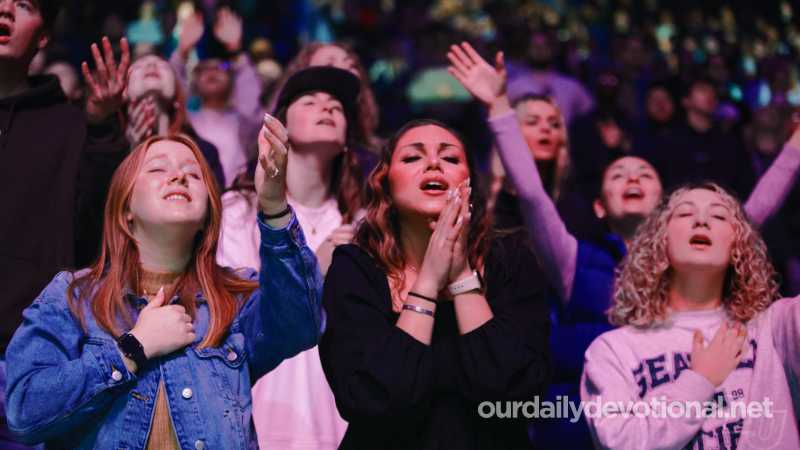The festivals of Jehovah, instituted under the law given by Moses, have a character of commemorations, or assemblies of the congregation, to celebrate special treatments of the Lord, and consequently special dispensations in the history of his people, and are called "holy convocations."
In Lv. 23 a list of the annual festivals is given. The first one mentioned is Saturday. If Saturday is included in the calculation, considering Passover and the Feast of Unleavened Bread as one, there are "seven" festivals in total, the perfect number.
If the Sabbath is not included, because it was a weekly festival, the rest of God, on which the others were based, the Passover and the Feast of Unleavened Bread can be counted as two, and the number of festivals remains seven. . There is no doubt that these seven festivals typified the manifold blessings from the cross to the millennium.
Typologically, they can be presented as follows:
The Sabbath (Lev. 23:1-3).
Abib 14: The Passover (Lev. 23:5).
Abib 15: Feast of Unleavened Bread (Lev. 23:6-8).
Antitype: "Our Passover, which is Christ, has already been sacrificed for us"; It is the fulfillment of the first part of these two festivals so closely linked. “So let us celebrate the feast, not with old leaven, nor with the leaven of malice and wickedness, but with unleavened bread of sincerity and truth” (1 Cor. 5:7, 8).
The sheaf of the first fruit, of the barley harvest. "The day after the Sabbath" (Lev. 23:9-14).
Antitype: The Resurrection. (Seven Saturdays interval.)
Siván: Pentecost. The Feast of Weeks: the Firstfruits, of the wheat harvest (Lev. 23:15-22).
Antitype: Descent of the Holy Spirit, formation of the Church.
1 Tisri: Feast of Trumpets (Lev. 23:23-25).
10 of Tisri: Day of Atonement (Lev. 23:26-32).
Tisri 15: Feast of Tabernacles: the grape harvest (Lev. 23:33-44).
Antitype: Awakening of Israel (Ez. 37); They afflict their souls (Zech. 12:10-14), receiving their Messiah, and are brought into blessing in the millennium (Zech. 13:8-14:21; Ezek. 36:22-38; 39:25-48 ).
These are what are called the “solemn feasts” (Num. 29:39; 1 Chron. 23:31; 2 Chron. 31:3; Neh. 10:33). They are also called "holy convocations", because the people gathered to offer the various offerings, and thus have memory of their association with the living God, to whom they owed all their blessings.
To ensure that this was done at least three times a year, there was an obligation for all capable males to appear before the Lord three times annually, and that they were not to go empty-handed. These occasions were the Feast of Unleavened Bread (which undoubtedly included the Passover); the Feast of weeks or the harvest; and the Feast of Tabernacles or the Harvest (Ex. 23:14-17; Deut. 15:16). See EASTER, etc.
Other annual festivals are mentioned which, although cited in the Scriptures, were not clearly ordained by God.
On the 25th of Chisleu, the Feast of Dedication, instituted by Judas Maccabeus when the temple was rededicated after having been desecrated by Antiochus Epiphanes, in the year 165 BC. (John 10:22).
The other is the Feast of Purim, the 14th and 15th days of Adar, when the Jews were delivered from the destruction that Haman had plotted against them (Esther 9:21, 26).
Meaning of PARTIES
The festivals of Jehovah, instituted under the law given by Moses, have a character of commemorations, or assemblies of the congregation, to celebrate special treatments of the Lord, and consequently special dispensations in the history of his people, and are called "holy convocations."







